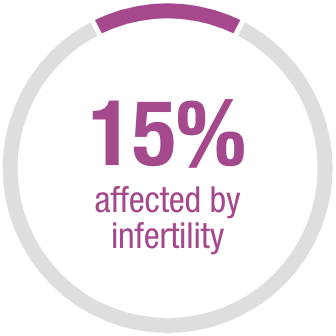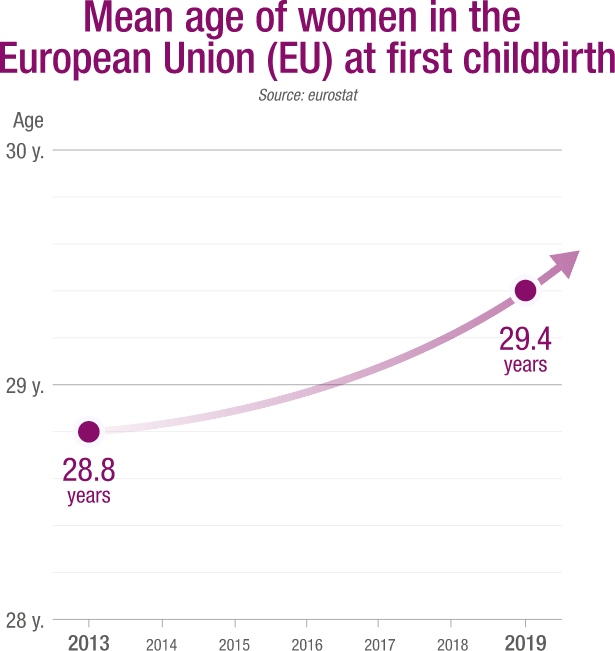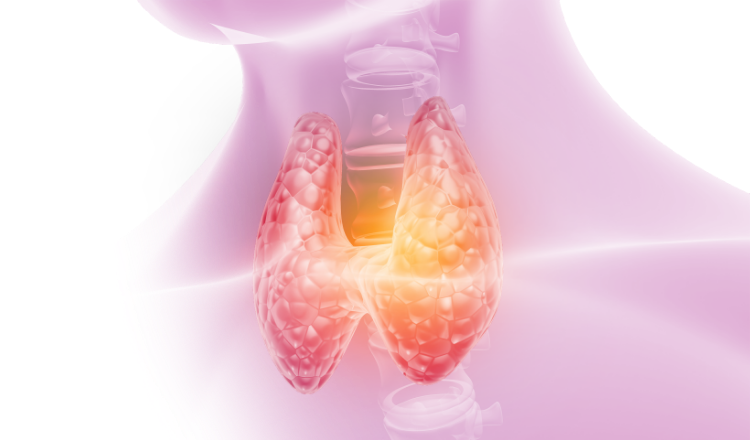
Around 15% of all couples are affected by infertility worldwide. The cause lies roughly equally in the woman (“female factor”) and the man (“male factor”) or in a combination of both factors.

If pregnancy does not occur within a year despite unprotected intercourse, sterility or infertility may be assumed.
The following causes can limit fertility:
Infertility has numerous causes and is consequently characterised by different variations, all of which can exert their individual influences. Stress and psychological strains can even create such a situation for young couples at times. In principle, it is a natural protective mechanism of the body in this case because the triggers prevent the woman from concentrating on pregnancy in peace and tranquillity.

Negative effects on female and male fertility come from alcohol, nicotine, drugs and environmental toxins. Sperm production in men may decrease with heavy nicotine consumption. There is a risk that ovulation will fail to occur in women. Being underweight or overweight are two further negative factors in relation to a lack of fertility. Diets can also result in cycle disorders and thus infertility. The same applies to competitive sport and heavy physical work.
Another reason lies in the physical causes. These can be congenital or developed over the years. Operations can also be responsible. A combination of physical and psychological causes often underlies the problem.
With regard to idiopathic sterility,the smallest changes in both partners, who alone cannot be responsible for the previous childlessness, are the cause. This form of sterility is referred to when no causes for male or female infertility can be determined despite conscientious diagnostics.
Let’s first take a closer look at the causes of the female problem:
Our “modern” lifestyles
More and more couples are making the conscious decision to have children when they have reached or passed the age limit 30+ or even 40+. However, the biological conditions are then no longer as optimal as in younger years. The disruption of egg cell maturation or corpus luteum insufficiency (insufficient progesterone is released) often occurs. The cycle can become unbalanced due to the under or overproduction of certain messenger substances.
Eurostat shows that the average age of first-time mothers in Europe was 28.8 years in 2013. In 2019, this key figure was 29.4 years. And the trend is continuing upward, also in other industrialised countries, even though the “biological limit” cannot be postponed beyond the time set by mother nature. The fact is that people are waiting longer and longer to have children.
Individual lifestyle with fast food etc. can also have a negative effect, when you consider that being overweight can ultimately disrupt egg cell maturation. This can also be connected to a polycystic ovary syndrome (PCOS), which can significantly impair fertility.


A disturbed hormone balance
If the hormone balance is disturbed, only a small number of egg cells can mature under some circumstances. Ovulation fails to occur and the uterine lining is not sufficiently prepared for embryo implantation. It is also possible that the cervical mucous changes and prevents the sperm from entering the uterus.
The hormonal area also includes impaired thyroid function in the form of hypothyroidism or hyperthyroidism (underactivity or overactivity) as well as diabetes. Both can be responsible for sterility.
Other organic causes
Endometriosis (the uterine lining grows in other organs), fibroids in the uterus (benign tumours) and adhesions also occur frequently. Immobile or blocked fallopian tubes and the tendency to develop cysts can also be responsible for female infertility.
If the fallopian tubes are stuck together, fused or blocked due to infections, inflammations, operations or endometriosis, the transport route for the egg cell can be restricted or no longer fulfil its purpose.
Congenital malformations of the reproductive organs are rarely the cause when the desire to have children is unfulfilled. Immunological defence reactions to the partner’s sperm are equally rare.







